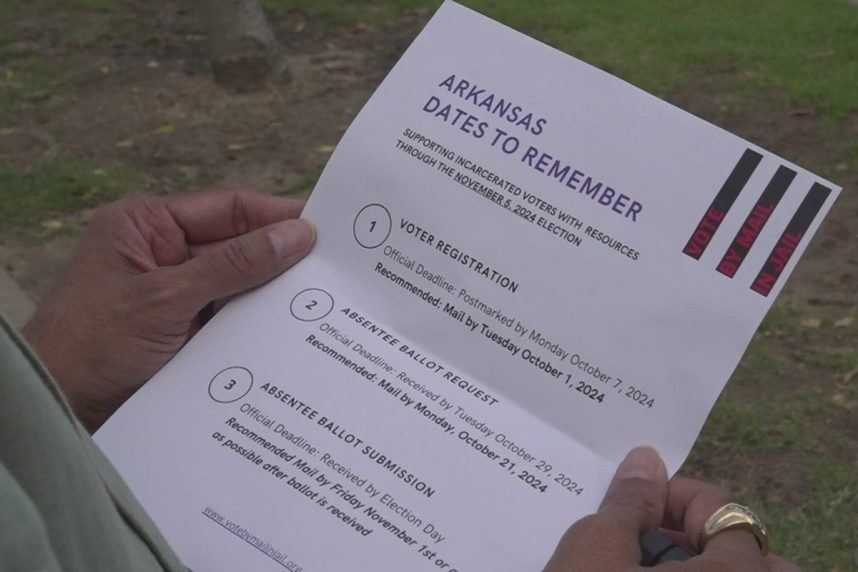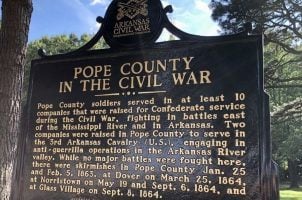Arkansas Casino Referendum Likely to Remain Following Special Master’s Report
Posted on: September 10, 2024, 08:41h.
Last updated on: September 10, 2024, 09:07h.
The odds of the Arkansas casino referendum remaining on the November 5 ballot shortened this week after a special master assigned to review litigation challenging the campaign’s canvassing procedures found little evidence of wrongdoing.

The Cherokee Nation of Oklahoma is trying to stop the referendum that would ask Arkansans to amend the state constitution to only allow the Arkansas Racing Commission (ARC) to grant commercial casino licenses to counties that want them.
In 2018, Arkansas voters passed a statewide referendum to allow casinos in Crittenden, Garland, Jefferson, and Pope counties. However, Pope County was one of only 11 counties among the 75 in the state that voted against the gaming question.
The Choctaw Nation is behind the Local Voters in Charge committee that submitted more than 160K signatures from registered voters to push the casino repeal to the 2024 ballot. The Choctaws are seeking to protect their tribal casinos in neighboring Oklahoma.
Special Report Finds Few Discrepancies
In June, the Cherokee Nation, doing business as Cherokee Nation Entertainment in Arkansas, was deemed the winner for the gaming license earmarked for Pope County. The tribe plans to build a $300 million destination called Legends Resort & Casino in Russellville.
Last month, Arkansas Secretary of State John Thurston said Local Voters in Charge had met the 2024 referendum requirements and the casino question would go before voters. Thurston’s office validated more than 116K of the 160K signatures submitted.
The Cherokees consequently filed a lawsuit with the Arkansas Supreme Court.
The Cherokees argued that the Arkansas Canvassing Compliance Committee, which the tribe created and funds, found numerous errors in how Local Voters in Charge went about collecting signatures. The lawsuit includes claims that canvassers were paid based on the number of signatures collected, canvassers and canvassing captains weren’t properly certified, and residential addresses for several canvassers were incorrect.
Since time is critical, as Election Day is only 55 days away and early voting in Arkansas begins two weeks before November 5, the state Supreme Court agreed to expedite its review of the Cherokee lawsuit. The high court appointed Randy Wright, a judge in the Eighth Judicial Circuit Court, to serve as a special master on the case.
On Monday, Wright released his “Master’s Report and Findings of Fact” that seemingly improved the odds of the Local Voters in Charge question remaining on the ballot.
Report Findings
Wright said the canvassing claims made by the Arkansas Canvassing Compliance Committee had little to no merit. The judge said there was no evidence that canvassers were compensated based on the number of signatures they collected.
The Petitioners … did not offer proof that Local Voters in Charge or its agents actually paid a canvasser based on the signatures he or she obtained,” Wright wrote.
However, Wright did say that signatures collected from nine canvassers should be disqualified because those agents provided incomplete or incorrect addresses when registering.
The number of signatures to be disqualified totaled 5,966. That still leaves the number of total valid signatures at 110,234 — far more than the 90,704 needed.
Additional briefs from each side are expected in response to Wright’s report in the coming weeks. The Arkansas Supreme Court will likely render its decision in mid-October.
Related News Articles
Arkansas’ Pope County Casino License Fields Yet Another Lawsuit
Most Popular
FTC: Casino Resort Fees Must Be Included in Upfront Hotel Rates
Genovese Capo Sentenced for Illegal Gambling on Long Island
NBA Referees Expose Sports Betting Abuse Following Steve Kerr Meltdown
UPDATE: Former Resorts World & MGM Grand Prez Loses Gaming License
Most Commented
-
UPDATE: Whiskey Pete’s Casino Near Las Vegas Closes
— December 20, 2024 — 30 Comments -
Caesars Virginia in Danville Now Accepting Hotel Room Reservations
— November 27, 2024 — 9 Comments -
UPDATE: Former Resorts World & MGM Grand Prez Loses Gaming License
— December 19, 2024 — 8 Comments -
FTC: Casino Resort Fees Must Be Included in Upfront Hotel Rates
— December 17, 2024 — 7 Comments
















No comments yet